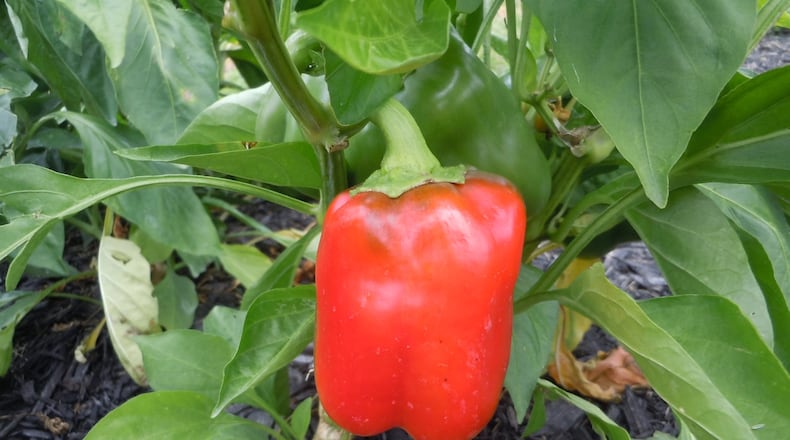Cows are munching down zucchini, yellow squash and cabbage that Southern Valley Fruit and Vegetable farms grew and picked for restaurants and other institutions.
It’s one way the company is trying to make use of the glut of south Georgia vegetables caused by the closure of dining spots, schools and other big buyers. South Georgia farmers ship food from Florida to Canada, but the closures cost them 40- to 50% of their market. Growers are caught between being unable to sell all their crop and selling what they can in a flooded market with dropping prices.
The pandemic has put farmers in line for a third — for some a fourth — tough year thanks to bad weather and the Chinese tariff war blockages. Georgia’s $13.7 billion agricultural industry is likely to see losses that will ripple up and down the economic ladder, especially in rural communities like Colquitt County, where Southern Valley is located. The vegetable business brought $167 million into the county in 2018, according to numbers from the University of Georgia.
“If commerce continues during our season the way it was during Florida’s season, then you will see the same effects that you saw in Florida,” said Jon Schwalls, the executive officer at Southern Valley. “It’s inevitable.”
There, farmers plowed under thousands of acres of fresh vegetables, and with them their hopes to avert a loss in 2020.
Besides turning vegetables into cow fodder, Southern Valley has donated food from it’s 3,000 south Georgia acres to helping agencies across the Southeast. But some of the corn, eggplant, peppers, broccoli and tomatoes ripening in the fields are likely to to go waste as the picking season is just starting.
“We have faced so much adversity over the past several years, I think there is a high probability that some won’t survive,” Schwalls said.
Gary Black, the state agricultural commissioner along with the University of Georgia's agricultural college and its network of farm cooperative extension offices are scrambling to create markets for Georgia produce from asparagus to zucchini. Also, some help could come from the federal Department of Agriculture under Secretary Sonny Perdue, which is starting a new national Farmers to Families Food Box program to buy and distribute up to $3 billion in meat and produce.
“It’s rare that you can see a storm coming,” Black said. But Florida’s sudden collapse of its winter vegetable market gave Georgia a good forecast.
His staff, UGA extension workers and farmers have been brainstorming ideas to open new markets for Georgia crops. Black said his workers met with representatives from 60 hospitals last week to create a cooperative to buy Georgia vegetables. The university's cooperative extension offices are helping sell boxes of vegetables direct to consumers, and other teams are working on a project to create pop-up farmer's markets in Atlanta and other locations.
“But rather than have a pickup truck variety market, we may be looking at 53-foot, 18-wheel truck variety,” Black said.
Georgians can also expect to see and hear commercials to buy fresh Georgia produce, especially as inexpensive fruits and vegetables from Mexico which were not sold there are pushed here.
That could slow any recovery for Georgia farmers.
“We are beginning to see Mexican blueberries and broccoli, and we expect to see other vegetables coming in,” said Charles Hall, director of the Georgia Fruits & Vegetable Growers Association.
“How quickly the restaurant and food service industry recovers will help us. The question is how fast that will come back around.”
As the picking season in Georgia has just begun and the food service businesses that were closed are just beginning to reopen, it’s difficult to forecast how the 2020 farm season in Georgia will pan out. Farmers will soon have to begin making decisions about what to plant and how much to plant in summer crops, which will be harvested in the fall.
That will be tough in the current environment.
“We have got to get little further into season,” Hall said. “We will know as far as how much hurt has been done then. But you almost have to get through entire season to know where you are at.”
About the Author
The Latest
Featured


